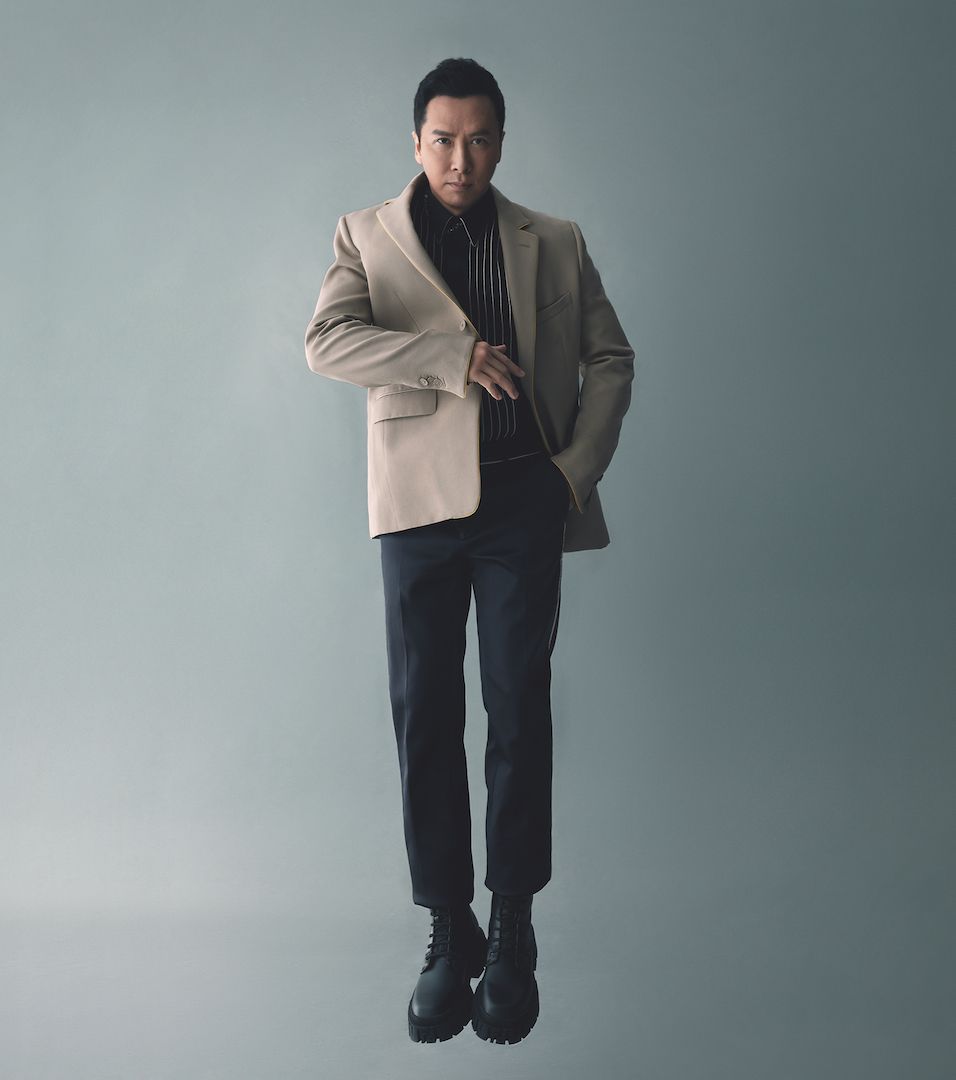Donnie Yen’s career has taken him from Hong Kong to Hollywood, but he is more devoted than ever to his roots
Five years ago, Donnie Yen transformed almost overnight from a Hong Kong martial artist into a Hollywood star when he appeared as the blind warrior monk Chirrut Îmwe in Rogue One, the first Star Wars spin-off film. From then on, the blockbuster jobs have kept coming: in 2017 he co-starred with Vin Diesel and Samuel L Jackson in the action flick XXX: Return of Xander Cage, and he played the wise Commander Tung in Disney’s big-budget 2020 remake of Mulan. At the time of writing, he is in Paris with Keanu Reeves, filming John Wick: Chapter 4.
But the more success Yen has had abroad, the more he has been thinking about his hometown, Hong Kong.
“The Hong Kong style of action filmmaking has impacted the world for the last four decades, from Bruce Lee to Jackie Chan and Jet Li and myself,” he says. “But now the Hong Kong industry says, ‘Oh, this is old school. We can’t do this any more. Young people don’t watch these films.’ I disagree with that totally. Hong Kong filmmakers have taken the action genre for granted—they don’t see this gem, this beauty. They are following American blockbusters, instead of looking at what we’ve done best for the longest time.”
Don’t miss: 30 Best New Korean Dramas to Binge-Watch in 2021

This really hit home for Yen when he was first approached by John Wick producer Basil Iwanyk and director Chad Stahelski; as well as by Reeves, who he first met at a FilmAid gala in Hong Kong in 2012. “They told me, especially Chad, that they’d watched every single one of my films,” says Yen. “Even Enter the Fat Dragon, when I was wearing a fat suit. They studied my films. In fact, they told me that they used Flashpoint and SPL kind of like a study guide for one of their action directions.” Hong Kong filmmakers, Yen realised, were no longer drawing on the city’s cinema history in the same way. And his contemporaries, such as Jackie Chan and Jet Li, have all either retired or branched out to work on other projects. “That just leaves me,” he says. “I think I’m the only person who still dedicates 100 per cent to the art of Hong Kong action filmmaking.”
Rather than despair, Yen is taking proactive steps to save the genre. In 1997, he co-founded a production company, Bullet Films, with his wife, Cissy Wang. “I want to use my influence to discover some young talents—hopefully they can carry the torch and pass on this unique form of filmmaking,” he says. Among the rising stars Yen has mentored so far are Japanese director and stunt coordinator Kenji Tanigaki, who has collaborated regularly with Yen since the early 2000s, and Andy Yan, who has gone on to enormous success in mainland China, most notably as the action director of the 2019 sci-fi blockbuster The Wandering Earth, which earned almost US$700 million worldwide.
Through Bullet Films, Yen plans to produce films that draw on the best Hong Kong films of the past while also pushing the action genre forward. “I said to Chad, who is directing John Wick, that what I always wanted to do is to repackage Hong Kong action films,” says Yen. “John Wick is a perfect example. If you really think about the story of John Wick, [Hong Kong filmmakers] did this kind of film all the time. But the style of John Wick—the music, the wardrobe, the world—the whole stylistic element that is injected into it, it’s so cool.” It is this mix of Hong Kong-style action scenes with Hollywood- quality world-building that Yen hopes to develop.
Yen often acts as producer of the films he stars in, so that he can put his creative stamp on them. One of his most recent projects, Raging Fire, which he starred in and produced, proves that he is right in thinking that there is still hunger for Hong Kong action films. Raging Fire premiered in July in mainland China, earning US$40.5 million on its opening weekend alone. Around the world, the film has so far raked in more than US$210 million.
Don’t miss: Hong Kong Director Fruit Chan Looks Back at His 40-Year Career in the Film Industry

